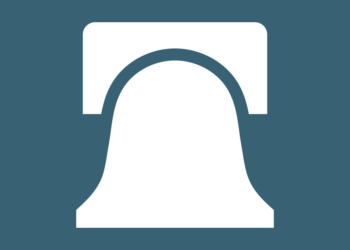from the transparently-full-of-shit dept
As promised, the Trump FCC under Brendan Carr this week voted to begin dismantling rules requiring that your ISP offer clear and transparent details on the cost and limitations of your broadband connection.
The rules, originally mandated by Congress as part of the infrastructure bill, required that ISPs affix a sort of “nutrition label” to broadband access at the point of sale. It was a long-cultivated bid to do the bare minimum to combat decades of misleading pricing and bullshit fees in broadband and TV.
The rules simply required that ISPs list pricing, hidden fees, connection speed, and other limitations in a very clear manner on their websites. One recent study showed that ISPs were doing a pretty shitty job of compliance, and the government hasn’t really done anything serious to enforce the standard.
Still, broadband providers have always hated the rules because it theoretically might (if actually enforced) make it more difficult for them to rip you off via dodgy below the line fees they use to falsely advertise a lower price. So they lobbied the Trump administration to effectively lobotomize the rules this week as part of a much broader Trump effort to destroy pretty much the entirety of federal consumer protection.
They’re not eliminating the rules entirely just yet, because they don’t want to make it too obvious they’re just ignoring the will of Congress to benefit the biggest corporations. As consumer rights groups note, Carr is just weakening them to the point of unenforced uselessness, so he can then discard them later after claiming they don’t work:
“It’s the start of whittling away at these rules,” Raza Panjwani, senior policy counsel at New America’s Open Technology Institute, told CNET. “You get this two-step, right? You make it less useful. Then you say, ‘Oh, look, it’s not that useful. We should get rid of it.’”
The NPRM (notice of proposed rulemaking) was adopted on Tuesday. The FCC is now allowing 60 days for comments and responses so Carr can pretend this is some sort of democratic process (the FCC comment system is historically gamed by bad actors hired by the telecom lobby). A more formal vote to lobotomize the rules will come sometime later this year.
Carr isn’t even bothering to defend or announce this week’s action because he knows undermining Congress to help big telecom screw the public isn’t a good look. The FCC’s lone Democrat didn’t mince words on the effort:
“What adds insult to injury is that the FCC does not even explain why this proposal is necessary,” Gomez said. “Make it make sense. Instead of scaling back the information that customers receive, we should be making sure that, in fact, they can benefit from the labels.”
In a previous blog post (which you should read the first few paragraphs of to appreciate Carr’s particular brand of “humor”), Carr tries to pass this whole thing off as an efficient improvement of consumer protection. Which is, to be clear, a lie:
“We want consumers to get quick and easy access to the information they want and need to compare broadband plans (as Congress has provided) without imposing unnecessary burdens.”
Again, by “unnecessary burdens,” Carr means simply asking regional cable giants like Comcast and Charter — who enjoy a monopoly on broadband access across vast swaths of the U.S. — to be honest about how much you have to pay them. And whether or not Comcast is exploiting a lack of competition to make your connection more expensive or confusing (like usage caps).
Even if Carr wasn’t weakening the rules, he’d never enforce them anyway. His goal, at big telecom’s direct behest, is to make sure that future administrations can’t either.
This is, like so much Trumpism does, just rank corruption buried under the movement’s fake “populist” dedication to the working class and fake government efficiency. And nothing quite says “make America great again” like making it easier for Comcast Corporation to rip you off.
Filed Under: brendan carr, broadband, consumers, fcc, fees, high speed internet, nutrition labels, pricing, telecom













